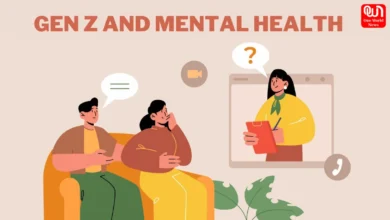Weight Loss Drugs Are Not Very Accessible and That Is Worrying
In a world where obesity rates continue to climb, the demand for effective weight loss solutions has never been higher. While pharmaceutical advancements have introduced a range of weight loss drugs promising to aid in the battle against obesity, many individuals who could benefit from these medications find themselves unable to access them. Despite their popularity and potential efficacy, these drugs remain out of reach for a significant portion of the population, highlighting systemic issues that hinder equitable access to essential healthcare interventions.
One of the primary barriers to accessing popular weight loss drugs is the cost. Many of these medications come with a hefty price tag, making them unaffordable for individuals without adequate insurance coverage or financial means. Even with insurance, high deductibles and copayments can pose significant obstacles for those already facing financial strain. As a result, many individuals are forced to forego potentially life-changing treatments simply because they cannot afford them.
Moreover, insurance coverage for weight loss drugs varies widely, with some plans offering limited or no coverage at all. This lack of consistent coverage further exacerbates disparities in access, particularly for vulnerable populations such as low-income individuals and communities of color. Without insurance support, the burden of covering the cost of these medications falls squarely on the shoulders of patients, creating yet another barrier to treatment.
Beyond financial considerations, access to weight loss drugs is also influenced by factors such as geography and healthcare provider availability. In rural or underserved areas, individuals may struggle to find healthcare providers who are knowledgeable about obesity treatment options or willing to prescribe weight loss medications. This lack of access to knowledgeable healthcare professionals can result in missed opportunities for diagnosis and intervention, further perpetuating disparities in care.
Additionally, there is a stigma surrounding obesity and weight loss medications that can deter individuals from seeking treatment. Society’s pervasive bias against obesity often leads to shame and discrimination, making it difficult for individuals to openly discuss their struggles with weight management or seek help. This stigma can be particularly pronounced in healthcare settings, where providers may hold negative attitudes toward obesity and prescribe weight loss medications only as a last resort.
Furthermore, concerns about safety and efficacy may lead healthcare providers to hesitate in prescribing weight loss drugs, further limiting access for those in need. While these medications can be highly effective when used as part of a comprehensive weight loss program, they are not without risks. Side effects such as increased heart rate, gastrointestinal issues, and potential interactions with other medications must be carefully considered when prescribing weight loss drugs. As a result, providers may be reluctant to prescribe these medications unless absolutely necessary, leaving many individuals without access to potentially life-changing treatments.
Read more: The Biggest Mental Health Challenges for Gen Z (oneworldnews.com)
In conclusion, the inaccessibility of popular weight loss drugs for those in need underscores the systemic barriers that prevent equitable access to essential healthcare interventions. From financial constraints and insurance coverage disparities to stigma and provider hesitancy, numerous factors contribute to the inequitable distribution of weight loss medications. Addressing these barriers will require a multifaceted approach that includes policy changes, provider education, and efforts to reduce stigma surrounding obesity. Only by dismantling these barriers can we ensure that all individuals have access to the care and treatments they need to achieve and maintain a healthy weight.
Like this post?
Register at One World News to never miss out on videos, celeb interviews, and best reads.








